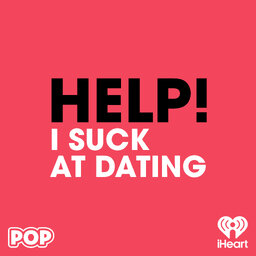Working Towards Change
Dean and Jared have an honest and vulnerable conversation about racism and the protests against police brutality throughout the nation.
Jubilee Sharpe (The Bachelor - Ben Higgin’s season and Bachelor in Paradise) joins Dean and Jared to educate, enlighten, encourage them about matters of race. They also address the underrepresentation of Black people on The Bachelor.
Dr. Ish discusses racial issues and how they affect our relationships. He shares resources that people can use to better understand the experiences of Black people in America.
Learn more about your ad-choices at https://www.iheartpodcastnetwork.com
 HELP! I Suck at Dating
HELP! I Suck at Dating


